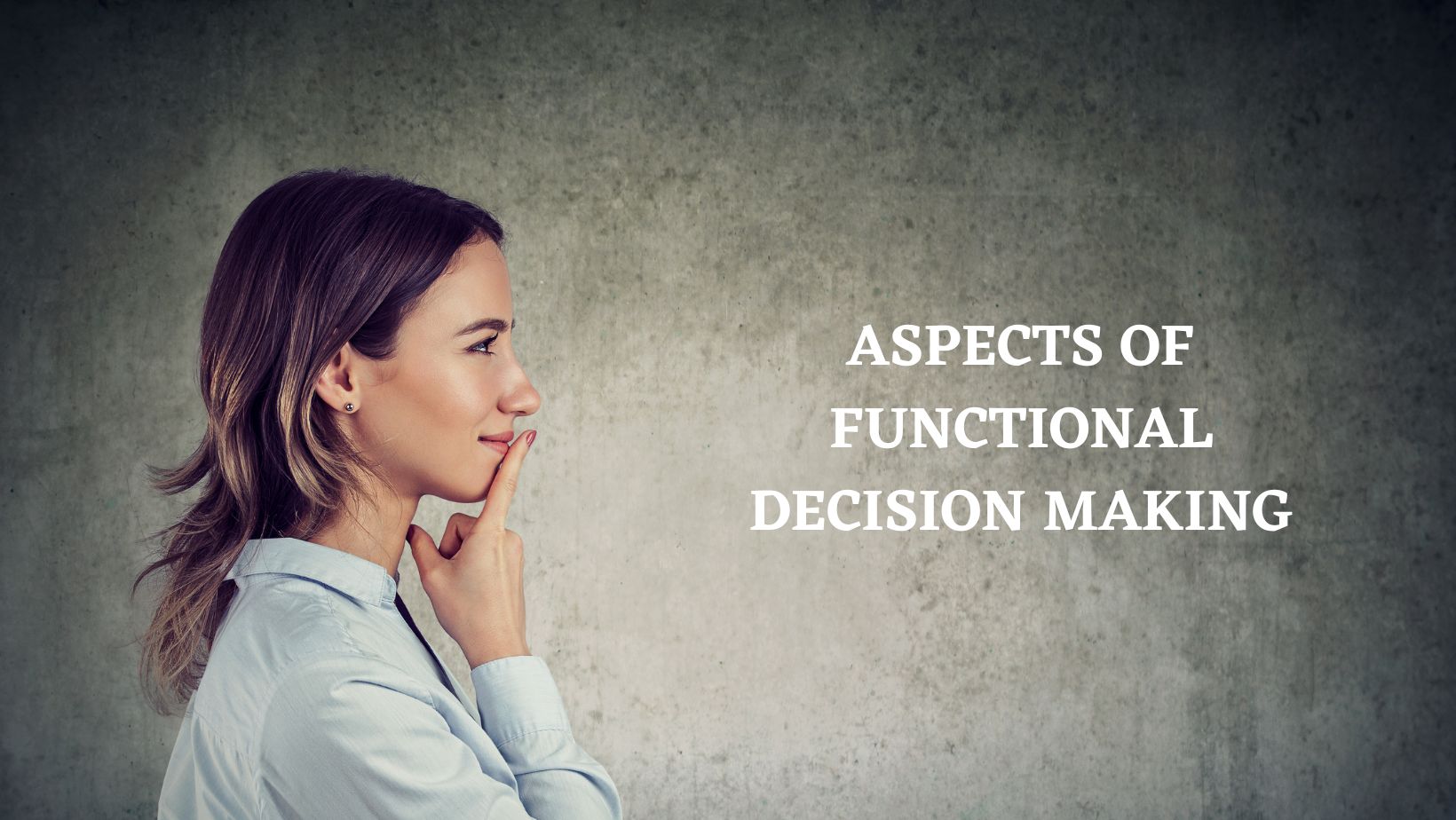
Sleep Quality among University Students
University student sleep quality has been deteriorating for the last 10 years. The research shows that up to 60% of college students experience poor sleep, and 7.7% of them meet the criteria for an insomnia disorder (Schlarb et al., 2017).
Learn More
ASPECTS OF FUNCTIONAL DECISION MAKING
Do you have problems with making decisions by spending too much time, even on simple things, such as what to wear or what to eat? What is the most important decision you’ve had to make? Was it easy, or did you have struggles? thinking goal-oriented creatures. We constantly make decisions throughout the day on various issues. We always need to make a choice between various options, from simple ones like what to wear or what to eat to the most crucial life events like marriage, career, health issues, and so on. The style we use in making our decisions affects the results, so it is important how we think and what we think while we decide. There are many factors that play important roles, consciously or unconsciously, in our thinking patterns when we come to a point where we have to make a choice among different options. Among these factors, for sure, our own upbringing has the biggest impact on our decisions.
We always need to make a choice between various options, from simple ones like what to wear or what to eat to the most crucial life events like marriage, career, health issues, and so on. The style we use in making our decisions affects the results, so it is important how we think and what we think while we decide
The Diverse Landscape of Decision-Making Styles
Although we have constant interaction with our social circles, we evaluate external factors through our personality lenses, which were shaped by our parents and childhood experiences. Therefore, some of us make decisions based on our emotions by looking at previous examples and stories. Some people are rule-oriented and pay attention to principles and guidelines, again by looking at previous similar examples. However, some of us have a good sense of self-confidence, and we trust our own discretion. On the other hand, people who have common sense, pay more attention to information and consider publicly approved results as their decision-making style. For some people, their values and faith criteria are important, and they make decisions by considering them, especially in crucial life situations. Sometimes, short-term benefits appear to be more logical, and some people jump to a conclusion without thinking of their future. Depending on how much we internalize these styles, we tend to make decisions quickly or slowly. People who have a quick style are more intuitive, and they refer to their perceptions and memories immediately at the moment of making a decision. Those who are slower, though, are more deliberate, logical, and cautious.
It can also be a very difficult issue for some people to make a decision on. It may even be a heavy burden for them to make a choice and reach a conclusion, even in simple daily cases. They spend considerable time and energy making up their minds. There may be various underlying factors that contribute to this difficulty.
ASPECTS OF FUNCTIONAL DECISION MAKING
- Lack of self-confidence
One of the common reasons is a lack of self-confidence. Due to their upbringing or personality, such people rarely trust their own reasoning while making their decisions. They generally tend to rely on other people’s opinions and seek help.
- Lack of knowledge
When we do not have reliable information or enough knowledge about the issue, we are struggling with, it is obviously difficult to decide. In such cases, all we need to do is to ask an expert or someone who has had a similar experience.
- Fear of loss
Some people may have a fear of losing what they have in their hands and are afraid of making a new choice. This may help them keep stability in their lives while also making them miss an opportunity for growth and change.
- The fear of making the wrong decision
Another fear that people may have is the fear of not making the right choice. This feeling is slightly different from the fear of loss because when people make wrong decisions, they are worried that they may both have a dreadful result and/or receive criticism.
One other reason may also be the stress of being in the situation of making a decision. It is interesting that some people may really not want to take on the responsibility of making a decision, so they try to avoid getting into such situations.
Make functional decisions
All these factors, then, lead us to think about how to make functional decisions. First of all, making healthy decisions is related to practicing a healthy way of life. Therefore, leading a healthy life helps us protect our brain’s functioning. For this, we need to
- Keep a healthy eating style, maintain good sleep hygiene, and do regular exercise.
- -avoid making decisions when we are too angry, too sad, or too happy.
- evaluate the pros and cons of the issue
- Examine our own values and religious principles.
- Search well for the required information
- Listen to your heart.
However, one thing we always need to keep in mind is that we are all human beings and we are prone to making mistakes. It is so normal to make wrong decisions throughout our lives. Accepting ourselves and our decisions and standing by them allows us to practice self-compassion. Instead of criticizing ourselves, we can make positive statements to ourselves, such as “My intention was good,” or “At least I tried my best.” We can also think that there must be a pearl of wisdom behind it and search for other ways you can benefit from your new decision. Most importantly, we need to feel free to turn back from our decision if possible, because it is also another opportunity to make a new decision. This is our life, and we are responsible for it.
Contact us and one of our team members will get back to you within 48 hours.
111 Waterloo St unit 406 London ON N6B2M4
mail@resiliencec.com
Phone + 1 (226) 374-4457
Cell + 1(226) 210-4170
Fax + 1 (226) 916-0283
Learn More
SELF-COMPASSION
It is very common that almost everybody has at least one aspect of their personality that they wish they did not have. Some of us don’t like getting angry easily or overreacting to simple things. Some may not like themselves for being too shy or too bold to jump into every conversation
Learn More